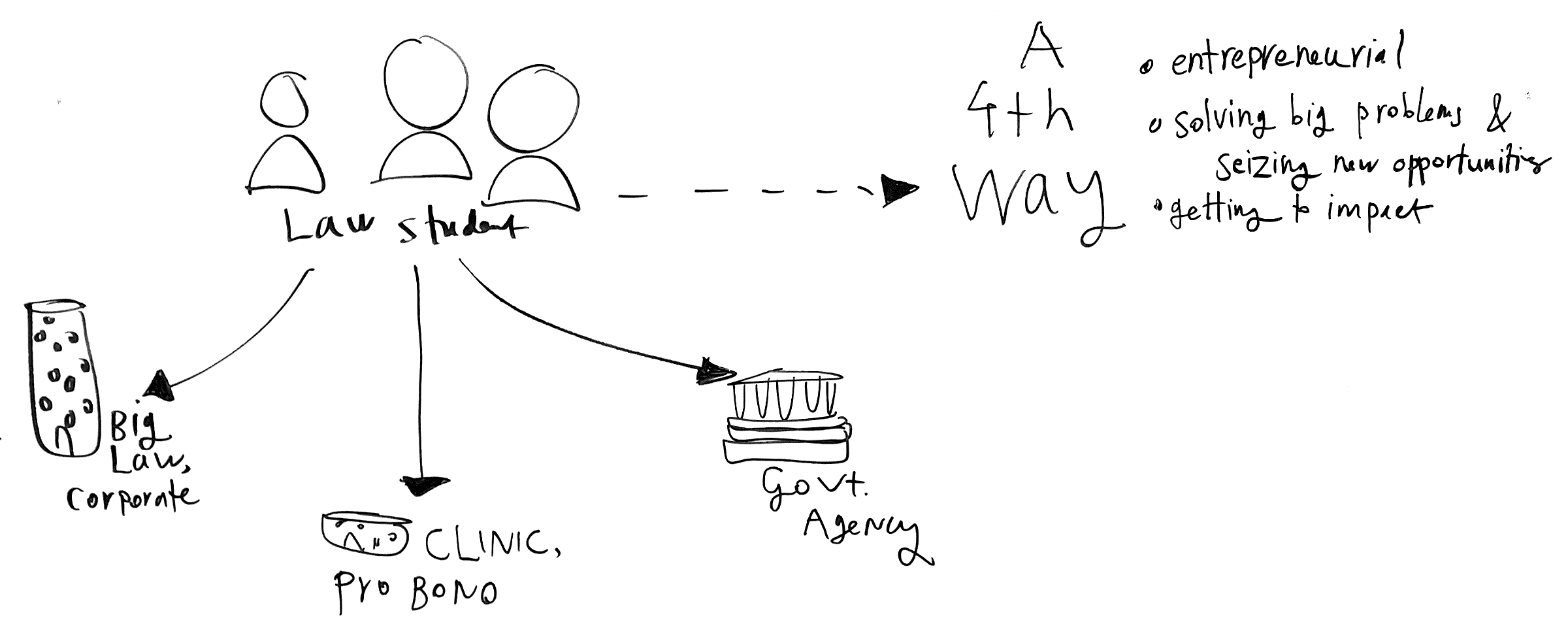I have been talking with lots of 2Ls, 3Ls, and newly minted JDs over the past year, about what other kinds of career tracks are open to young lawyers.
I’ve been advising them not to take corporate jobs just to pay off debt or get experience (the default advice I was given coming out of law school three years ago). And I urge them not to think that going to a standard non-profit/clinic or to a government agency are the only real alternatives.
Most of them feel stuck with these three options (and increasingly, don’t even have the corporate one). They don’t want the lifestyle, the work culture, or the type of work that come with these standard tracks.
They’ve reached out to me because they want to tackle problems with legal practice or the legal system in different ways. The question is: what are the career tracks for an entrepreneurial lawyer?
If it’s not starting a start-up on your own, who else will pay a newly-minted JD to develop technology, find new business models, create better legal services, and fix other problems with our current system? There seems to be no obvious route to start off as a ’21st century lawyer’.
If this applies to you, here’s my basic advice:
- Start taking project-based classes in law school, typically found in your business school, management science school, or design/engineering.
- Think in terms of building a portfolio for yourself — showing deliverables that you (or you and a team) have created. Show proof that you can go beyond writing reports or doing analysis, to actually building stuff.
- Use these project based classes to learn how to manage projects, how to work interdisciplinarily, and what it means to be agile, experimental, and tech-centered.
- Put as much of this as you can online, and tweet it, blog it, and reach out to others who are interested in the same stuff
It may seem like a lot to do for law students who have so many obligations and deadlines. But the goal has to be building a track record that shows you’re not just interested in a creative, entrepreneurial lawyer track, but that you will know how to operate and get to impact.
As more firms, courts, law schools, and others start to seek out unicorn-JDs, who not only know the law but also know how to build new things and make better services — it’s all about the portfolio. These organizations are looking for people with hybrid skills, who don’t know just how to research and write, but also how to get from ideas and proposals to actual working initiatives.
Law students, especially those interested in taking entrepreneurial paths, should be building this skillset, so they can convert their legal knowledge and insights about what could be better into actual change.




